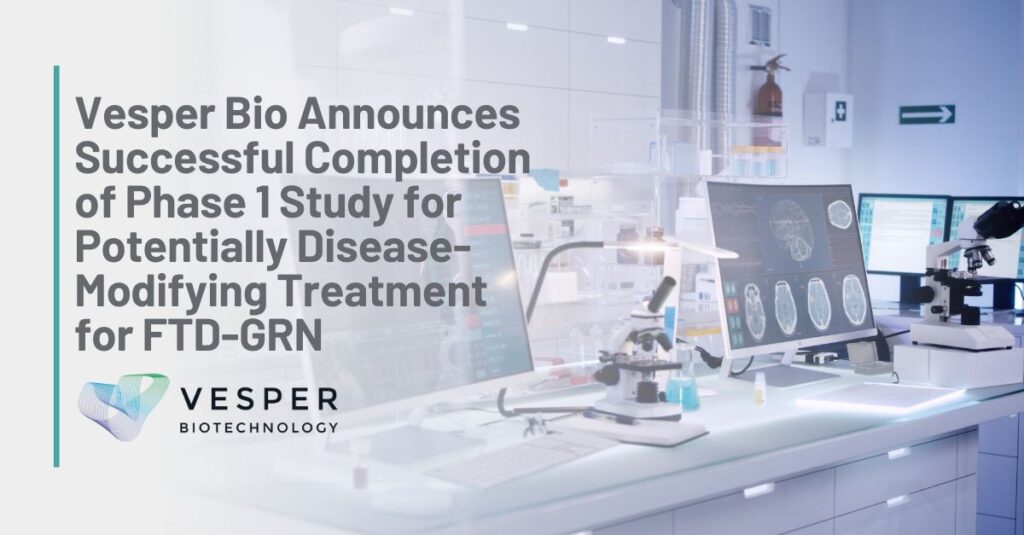Vesper Bio Announces Successful Completion of Phase 1 Study for Potentially Disease-Modifying Treatment for FTD-GRN

Biotechnology company Vesper Bio announced in early September that the phase 1 clinical trial for its potentially disease-modifying treatment for FTD-GRN has successfully concluded. The company noted data from the trial demonstrated excellent safety and tolerability of the orally administered drug VES001.
In FTD caused by an inherited GRN mutation, the production of the essential protein progranulin is suppressed. Another protein, sortilin, binds to progranulin and targets it for degradation, further reducing the amount of progranulin. Because progranulin plays a neuroprotective role, lowered levels of the protein are associated with neuronal dysfunction and the abnormal accumulation of a third protein, TDP-43.
Trial Shows VES001 is Safe, Tolerable, and Boosts Progranulin Levels
VES001 is a novel, orally administered drug that selectively inhibits sortilin, preventing it from binding with progranulin. Through this process, VES001 can boost progranulin levels in people affected by a GRN mutation.
“Vesper Bio is proud of its status as a world leader in sortilin biology,” said chief medical officer Mads Fuglsang Kjølby, MD, PhD. “The data generated in our phase 1 trial of VES001 demonstrate the potential of sortilin inhibition as a therapeutic approach to the treatment of frontotemporal dementia, and potentially other neurodegenerative diseases.”
The phase 1 trial, which involved 78 volunteers without FTD-GRN, evaluated the safety and tolerability of the drug. The trial also involved monitoring how the drug was absorbed, distributed, and metabolized by participants. Vesper Bio reported that VES001 met all goals during the study, with data from the multiple ascending dose stage re-affirming earlier findings from the completion of the single ascending dose stage, which showed high safety and tolerability. Data from the multiple ascending dose stage also showed a substantial normalization of progranulin levels in participants who were dosed once or twice daily with VES001.
“At Vesper, we are motivated by our patients and their relatives, who inspire our mission to develop innovative therapies that can help fight this awful disease,” said CEO Paul Little, PhD, CChem FRSC. “These promising clinical data coupled with VES001’s patient-friendly profile bring us one step closer to transforming patient outcomes in frontotemporal dementia.”
Vesper Bio noted that it has completed a clinical trial application to begin a phase 2a trial with VES001. Typically, phase 2a studies seek to determine an optimal dose. This phase is a precursor to phase 2b studies, which evaluate how well a drug works against a medical condition like FTD.
By participating in studies like the trial evaluating VES001, you can contribute to new treatments for families today and bring hope for a future free from FTD. If you are interested in participating, visit AFTD’s Studies Seeking Participants page to learn about available opportunities.
By Category
Our Newsletters
Stay Informed
Sign up now and stay on top of the latest with our newsletter, event alerts, and more…
